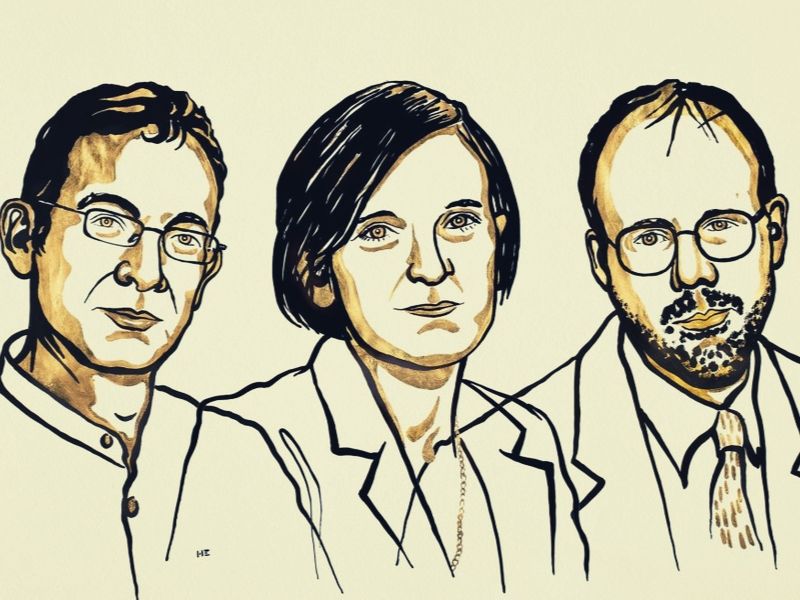The Nobel Economics Prize 2019 has been awarded to Indian-American Abhijit Banerjee, French-American Esther Duflo and US-based Michael Kremer for their work on poverty. “The research conducted by this year’s Laureates has considerably improved our ability to fight global poverty. In just two decades, their new experiment-based approach has transformed development economics, which is now a flourishing field of research,” the website read.
“This contribution has had a huge impact in a relatively short period of time,” the website added. They are being awarded “for their experimental approach to alleviating global poverty.”
A graduate from University of Calcutta and post-graduate from Jawaharlal Nehru University, Banerjee completed his PhD from Harvard University in 1988. He is currently the Ford Foundation International Professor of Economics at the Massachusetts Institute of Technology (MIT). He had previously taught at Harvard and Princeton universities.
His work focuses on development economics and together with Esther Duflo, who also happens to be his wife, Michael Kremer, John A. List, and Sendhil Mullainathan, they did field experiments as an “important methodology to discover causal relationships in economics.”
Congratulations to Shri #AbhijitBanerjee on being conferred the #NobelPrize on #Economics pic.twitter.com/hNWw4XOObO
— Gopal Krishna Agarwal (@gopalkagarwal) October 14, 2019
Recommended: 100th Nobel Peace Prize: Ethiopian PM Abiy Ahmed Ali honoured
Meanwhile, Duflo is the Abdul Latif Jameel Professor of Poverty Alleviation and Development Economics in the Department of Economics at the MIT. She also co-founded the Abdul Latif Jameel Poverty Action Lab along with Banerjee.
2019 Economic Sciences Laureate Esther Duflo, born in 1972, is the second woman and the youngest person to be awarded the Prize in Economic Sciences.#NobelFacts #NobelPrize pic.twitter.com/0Ek8E7kLRh
— The Nobel Prize (@NobelPrize) October 14, 2019
Kremer graduated from Harvard University following which he did his PhD at MIT and has been a visiting assistant professor at the University of Chicago in 1993. He further served as the professor at MIT from 1993 to 1999. He is currently the Gates Professor of Developing Societies at Harvard University.
The Royal Swedish Academy of Sciences also added that Banerjee, Duflo and Kremer’s research findings “have dramatically improved our ability to fight poverty in practice. As a direct result of one of their studies, more than five million Indian children have benefitted from effective programmes of remedial tutoring in schools. Another example is the heavy subsidies for preventive healthcare that have been introduced in many countries.”
Last year’s prize went to William D. Nordhaus of Yale University and Paul M. Romer of the Stern School of Business in New York for bringing long-term thinking on climate issues and technological innovation into the field of economics.
Other than Duflo, Elinor Ostrom is the only woman to have been honoured with the Nobel in economics. She was awarded in 2009, which she shared with Oliver Williamson for their research into the limits of markets and how organizations work.
So far, Elinor Ostrom is the only woman that has been awarded the Prize in Economic Sciences.
She was awarded the prize for work on human cooperation, showing how natural resources can be shared sustainably by a community without central authorities or privatisation. pic.twitter.com/y3SzlwQbY3
— The Nobel Prize (@NobelPrize) October 14, 2019
